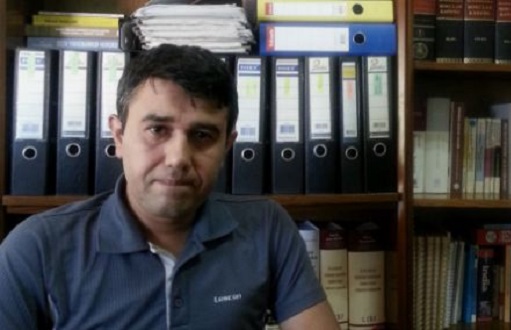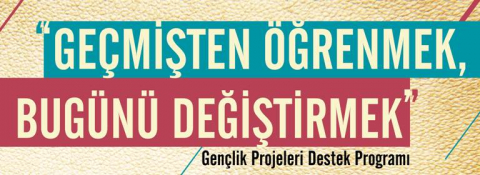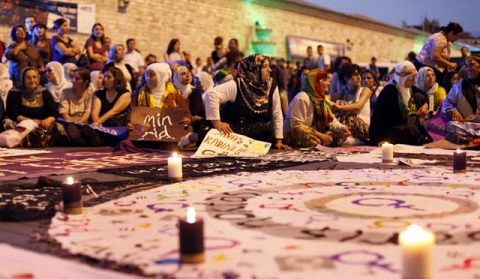
Interview with Rıdvan Dalmış: ‘I do not believe the murders committed in the region will be solved’
Interview: Emel Ataktürk
* As a lawyer who has pursued a high number of lawsuits on enforced disappearances and unsolved murders, and also a person who has lived in Şırnak, could you give us a brief overview of the 90s?
After 1991, the Kurdish movement began to penetrate cities from rural areas [increase its influence in urban areas from its basis in rural areas]. Previously, there were little if any clashes or mass actions in cities, and village evacuations were exceptions, there were no more than a few villages in the whole of Şırnak that had been [forcibly] evacuated. However, after 1991, village evacuations became systematic, and people flowing to cities began to form the majority in urban areas. Most of these people felt humiliated by the State, they had been deprived of their sources of income. It is, of course, impossible to explain their anger only via the PKK.
Before and after the 1980s, there was almost incessant persecution in the villages carried out by the gendarmerie. A typical operation by the Gendarmerie would develop like this: Gendarmes would arrive at a Kurdish village, and demand a search. The village would put up a resistance; the blue units would surround the village and destroy the village within 48 hours. The women and children would be held captive, and livestock would be seized. Villagers were the target of such operations.
These people were ordinary Kurdish villagers in terms of the way they dressed and their life style. Kurdish villagers faced serious persecution in their villages for reasons such as [the acquisition/possession of] cigarette papers, a kilogram extra of tobacco or an unlicensed radio. Even if no firearms were discovered during the searches, the villagers were forced to hand in firearms. Therefore, they were forced to go and purchase a few firearms and then hand them in at the military station (A relative of mine served an 11-year prison sentence on such charges at a date as recent as 1995).
For all these reasons, you can’t expect people to become liberal when they migrate to the city. In the city, they met an ideology that corresponded to their anger, and formed the readily prepared masses of mass actions. Another significant event took place around this time. The same year, in 1991, hundreds of thousands of Kurds from Iraq, fearing a repeat of the Anfal Operation, entered Turkey via the Hakkari border. Although it was spring, it was a very cold period, and every day, hundreds of people were dying because of diarrhoea, the cold, and Iraqi attacks.
Despite this overall situation, false reports broadcast on television, Turkish soldiers’ obstruction of aid, the violence they carried out, and their attempts to push the people back towards the Iraqi army increased their anger significantly; and wiped away the last remaining crumbs of respect held towards the State.
After 1991, with the added effect of these angry villagers pouring into cities, mass actions began to be held in Kurdish cities; as a matter of fact, the aim of the extrajudicial killings carried out in the region was, in the beginning, to suppress such actions. The targets were selected randomly back then, too, but towards the end things truly began to get out of hand. The State was now used as a pretext to settle feudal feuds, and village guards were using the firearms and detention centres of the State to murder their enemies in blood feuds. The State used firearms in broad daylight to rob thousands of people. A simple suspicion, or an anonymous tip proved enough to be detained and forcibly disappeared.
* How did this period impact on Cizre, the town you lived in at the time?
In 1991, at a moment of anger, people assembled and stoned a police station, and set fire to a eucalyptus tree in the police station lodgings. A curfew that lasted for days was declared in the city. Hundreds of people were detained, taken to Diyarbakır, and people could return home only after a long period of torture and arrest. This incident is known in Cizre as the “date palm incident”.
This was because the people thought eucalyptus and date palm trees were the same thing, and the State especially went after those who set the date palm tree on fire. The massacre carried out in Cizre during the 1992 Newroz showed that the State had overcome its initial perplexity, and had returned to its tactic of suppression. On that day, they opened fire on the crowd in the cemetery. In the coming days, more than 30 people died by fire randomly opened, targeting people.
* I would like to know the impact of the attack carried out by the State during the 1992 Newroz, and whether the police, in addition to the gendarmerie, was involved in the incidents. The military’s role in the attacks has been widely discussed, but the role of the police has remained less debated.
After the 1992 Newroz, incidents escalated rapidly. In addition to the tactic of suppression, extrajudicial killings began. Village guards, Hizbullah, Jitem, the Police, confessors etc. were organized for this purpose. And in order to do this, first of all, jurisdiction over Cizre was taken from the police and handed over to the Gendarmerie. However, this did not mean that the police withdrew from the city. In order not to lag behind Jitem in cleansing operations, the Police formed its own execution squad and began to spread terror. This was when figures such as Yavuz, Tuna, Ramazan Hoca, the Gendarme ‘Cabbar’ [veya Jandarma Cabbar], Horoz, Bedran and Hekim appeared.
For instance, there was a police officer who introduced himself as “Horoz” [lit. “Rooster”]. He was referred to as such because his task was to rape women. This man, along with police officers Ramazan Hoca and Cabbar, formed the execution squad of the police. From that squad, I recall the trainee police officer called Cabbar. This man had in some way came into the possession of a car, and every time he came into the market centre, he drove his car into the crowd at random. This man did not only shoot people to death, he also tried to run people down with his car. He injured at least 5 people within a month, most of them were still children, and there was no one who could stop this man.
I remember another incident. Jitem members had erected a checkpoint over Cizre Bridge, the only route connecting Iraq to the Republic of Turkey. 4-5 metres ahead of this checkpoint, there was a police station. By displaying their weapons, they took extortion money from every vehicle returning from Iraq, with no exception whatsoever. Thousands of vehicles entered Turkey from Iraq everyday, and the amount of money they collected was incalculable. This point of robbery operated seamlessly from mid-’95 until the end of ’96. It was almost like Deli Dumrul’s bridge [Deli (‘Crazed’) Dumrul: a legendary figure in ancient Turkic mythology who incurs God’s wrath for holding the foot of a bridge and asking for extortion money, whether or not passers-by decide to cross]. The robbers were public officials, and the robbed were everyone returning from Iraq.
I would like to present another example to show the logic of the system. In Cizre, since people were worried about the lives of their relatives in detention, they inevitably tried various methods [to receive news]. Jitem was detaining people on absurd grounds; the goal was to collect extortion money, and one the money was received, Jitem’s errand boys took to the stage. They approached the anxious relatives with offers like, “I have connections there, I can save him or her, the commander is my friend, but you have to please him” and so.
People, out of desperation, sold everything they had and paid them. Often their relatives would be released; some times they never returned. For instance, Kemal Mubarız and Mehmet İlbasan, were forcibly disappeared in detention although their relatives were robbed blind. The reason for Mehmet İlbasan’s detention is interesting. This man went to the home of a village guard to ask for the money he was owed for the cattle he sold him. However, the village guard made him wait at his home and in the meantime informed Jitem that, “a PKK member was demanding a tax payment from him”.
Jitem then captured this villager at the house and murdered him by torture. And although he died, Jitem’s “errand boys”, as the phrase goes, take his relatives to the cleaners by promising to rescue Mehmet İlbasan. Again, immediately after Tansu Çiller’s infamous, “I have the list of Kurdish businessmen” speech, tens of wealthy businessmen and tradesmen in Cizre were detained, and later released after substantial amounts of extortion money were paid. They were not tortured in detention; however, they contented themselves with robbing them. This was partially reported in the media as well.
I would like to present a further example to show how random the act of massacre had become in everyday life. There was a man called Sofi Abbas who ran a stationery store next to Cizre High School. The PKK used to distribute photocopied leaflets around the same time. Jitem detained Sofi Abbas and his two sons only because he had a photocopy machine, and executed them by shooting. No other evidence necessary. Possession of a photocopy machine was enough for you to be murdered.
In brief, extrajudicial killings formed their own economy. People were detained, tortured, murdered, their villages were burned down and demolished, and they were robbed clean as well. To carry out these practices, the personnel of the State, the detention centre of the State, the white Toros [the Renault Toros, similar to the Renault 12, was a make of car widely and infamously used by the State in the region during this period] of the State, its confessor and Hizbullah member were brought together under a certain system, but in a degenerate manner. Provisional Article 1 of Law [Statutory Decree] No.285 allowed for such degeneration. According to this article, security forces possessed the authority to issue a firearm license to anyone it wished, and to any weapon, regardless of its origin.
If you had a blood feud, or other problems, and if you had managed to establish good relationships with a station commander, you could obtain a license for your “keleş” [slang for the AK-47, Kalashnikov]. Possessing a licensed Kalashnikov automatically made you a security officer (a village guard, a confessor, etc.). Besides, when you became a security officer, by force of Article 23 of Law No.2935, you then almost had the authority to arbitrarily kill people. And the firearm’s origin (ownership records) was not investigated. After this article came into force, with the at times active, and some times passive collaboration of officials, arms smuggling and crime rates skyrocketed in the region. “Homo homini lupus” became the new order.
* In this climate of total dread and fear, while tens of enforced disappearances, arbitrary executions and murders were carried out every day, what then was the stance of the judiciary? How did judges and prosecutors treat relatives of the victims, for instance, how did they react to your petitions?
I first submitted a petition regarding a case of extrajudicial killing in 2006, and despite all the witnesses the prosecutor declared a verdict of non-prosecution. Upon my appeal, the Siirt Heavy Penal Court ruled that the gendarmerie was concealing documents of the incident, and lifted the verdict of non-prosecution. Prosecutors wanted to close the investigation on the grounds that it was impossible for state officials [public officers] to commit such crimes. Lawsuits filed with great difficulty were closed on the same grounds.
For instance, the Şırnak Heavy Penal Court, in a file for an incident where 4 people were murdered, despite all evidence to the contrary, acquitted Abdulhakim Güven and Adem Yakın, on the grounds that “these persons who were in the service of the State at the time of the incident could not have committed these crimes”. Courts should reach verdicts on the basis of evidence. Yet the Şırnak Heavy Penal Court declared a scandalous verdict based on “impossibility with regard to person”. There were some rare conviction verdicts; but even then courts distorted the incident and sought to save the perpetrator with the lowest sentence.
For instance, in one case, in Kasrik, a gendarmerie private opened fire on a shared taxi carrying miners on their way to a coalmine after a routine identity check. He spent all his bullets, murdering 2 people and injuring a few people in the vehicle. The court ruled for negligent homicide – and by also taking into consideration the “sorrow” the gendarmerie officer felt due to the incident – and saved the perpetrator by sentencing him to 3 months. Even when there was a possibility of sentencing, courts perceived incidents as if they were caused by a natural disaster, or were traffic accidents, and saved perpetrators with the lowest sentence.
At a date as late as 2009, by which time conditions had partially eased, I witnessed a few incidents where prosecutors reprimanded and intimidated relatives of victims only because they were filing a criminal complaint, and dismissed witnesses. Judicial authorities are not willing to investigate incidents, and they approach incidents with the State’s mindset. They did not display a willingness to investigate the crimes that have been committed, and they are not willing now. In any event, a survey of case files of the period would reveal an interesting style of correspondence.
Let me explain that: This type of file is categorized under permanent search [warrants], and the prosecutor sends a formal letter to the security unit: “Lapse of time for this incident is set at his date. Communicate any development in this investigation to me until the date set. I won’t send you any further correspondence on this matter, but I kindly ask you to write me every 3 months until the lapse of time.”
Besides, one does not have to go back that much in time to see examples. The Roboski incident is still recent, and it has already been covered up. Judicial authorities in Turkey failed their class not only in the 1990s, but in the 2000s, too. Each period has its own murders, and the present government, which keeps harping on about the crimes of its predecessors, does not want to be held accountable for its own extrajudicial killings.
* As you know, there is a critical view that the judiciary in Turkey was never an independent and impartial force, and never could be, and this was due to the fact that the judiciary was structured, right from the beginning, as a branch of the executive power. I am curious about your response to this as a lawyer who for many years has pursued criminal cases; what are the main reasons for investigations not being carried out in the proper and required manner?
Of course, the perception/attitude of investigating authorities is not the only reason investigations could not be carried out. First of all, internal legislation did not allow for the investigation of crimes committed by security officers within the OHAL [State of Emergency] zone. Article 23 of Law No.2935 on the establishment of OHAL gave security officers the authority to commit arbitrary murder. I am not saying Jitem sought legal basis in this article in carrying out its murders. Yet the law did, after all, give Jitem this power. Besides, it gave the same power to the village guard involved in a blood feud, to intern police officer Cabbar, to Specialist Sergeant Tuna, and the gendarmerie private who mowed down a vehicle [full of people] in Kasrik.
Even if the prosecutor were to reach the conclusion that an extrajudicial killing or an enforced disappearance in detention had taken place, he had to apply to OHAL authorities for permission to investigate. The provincial or district gendarmerie commander acts is by proxy in charge of the OHAL authority. How realistic is it to expect permission for investigation to be issued? Would a superior issue permission for the investigation of a crime in which he is involved? If the OHAL authority does not issue the permission –and it won’t- then the prosecutor’s hands are tied. Besides, let us say the permission for investigation is issued.
In that case, again in line with Article 23, [the] apprehension [of public officials] for trial is prohibited. In other words, even if the judge were to opt for sentencing, he could not arrest the official who committed a crime. Article 23 made it almost impossible to investigate crimes committed by public officials.
* What happened when this legislation was abolished in 2002?
You could claim that this legislation was abolished in 2002. However, the State’s deeply embedded reflexes do not change when a law is changed. Impunity is still a major problem in crimes committed by security forces.
At the Temizöz case heard at the Diyarbakır 6th Heavy Penal Court, the prosecutors and district governors testified. Every single one of them ‘failed to remember’ even their signatures.
A prosecutor of the period said that in murder cases it was only the gendarmerie that collected evidence, and that the evidence they provided constantly pointed at the PKK, and that left them with no choice but to forward the inquiry to Diyarbakır, and that they could not carry out any additional investigation other than that of the gendarmerie. In brief, neither the legislation allowed prosecutors to investigate the murders, nor did they have the power to do that in practice.
* So how will the crimes of this period be brought to justice [solved], how will all these obstacles preventing investigation, or related to the statute of limitations be overcome?
I have no faith at all that the murders committed during that period will be solved. The reason for that is no longer only the unsuitability of legislation, or the considerable length of time that has passed, or the scarcity of evidence. On the contrary, because state officials committed these crimes without feeling the need to hide or disguise themselves at all, there is an inflation of evidence despite all the time that has passed.
And there are still many sites I have found out from witnesses that wait to be excavated. We have had countless witnesses provide testimonies. Again during this period, some perpetrators confessed to everything they did. And what was the outcome? More than 100 case files, featuring detailed evidence as outlined above, were entrusted to a single prosecutor by the Diyarbakır Chief Public Prosecutor’s Office. Then, tens of KCK [Koma Civakên Kurdistan, Group of Communities in Kurdistan] lawsuit files more were entrusted to the same prosecutor. In the end, the prosecutor who was meticulously fulfilling his duty was first suffocated with a heavy workload.
Later, he was dismissed from these files. In the case of these files, even the principle of natural judge was not observed. When a lawsuit is filed, on abstract grounds of security, the files are sent to a court in Central Anatolia and it becomes almost impossible for victims and lawyers to pursue the files.
Whatever reform is made, even if the statute of limitations were to be abolished, or if these crimes were classified as crimes against humanity, faced with this set of circumstances, I have no hope that light will be shed on these crimes. The aim, after all, is not to shed light on executions carried out by security forces, what is done is done for the sake of appearance. The will and the legislation both need to exist to shed light on these crimes. In the past, the legislation was unsuitable, now it is relatively suitable, but the will is absent.
* I, too, have from time to time felt desperate like you because of the State’s protective reflex in criminal procedures in Turkey. It is almost as if whatever you write or say as a lawyer, it finds no response, it echoes off the walls. Yet this thought is very dangerous. I mean, it could lead to the conclusion that, if your performance has no influence on the outcome no matter what, then there is no point in pursuing legal means to the end, or trying new methods. Yet when a persistent legal struggle carried out with the correct methods has a transformative effect over time. For instance, in Latin American countries, under political and judicial conditions very similar to those we have here, courts succeeded in creating much more libertarian legal precedents with the influence of lawyers. What is your view on this, can nothing be done under the current conditions?
What I said about my state of mind in the previous question could also be described as a lack of hope. The pressure brought on by the statute of limitations augments that lack of hope. In 2015, we will no longer speak of these murders as judicial cases, but as historical incidents. Because, barring a few exceptions, lapse of time will come into force. Of course, there is a lot that can be done. The first thing that springs to my mind is this; the remains of many people believed to have been forcibly disappeared in detention can actually be discovered. Because the [bodies of] forcibly disappeared persons were often cast away either in rural areas [on land plots] in the same area [they were murdered] or on land plots in provinces far away from the original site.
Often, [bodies of] the forcibly disappeared were discovered, and after being entered into criminal records, their remains were turned over to the municipality. However, their relatives could not find them. Because the relatives had no means to trace them. If a DNA bank of relatives of the disappeared was to be established, and preliminary reports of prosecutor’s offices were examined, the fate of hundreds of people will be clarified, and we can find out what happened to them. In other words, I believe that [the remains of] many forcibly disappeared persons can be found if a central data bank could be formed that would compare samples taken from funerals [unidentified remains] in prosecution records and samples from a DNA bank.
For instance, the Elazığ Prosecutor’s Office was for years in possession of information about the remains of Hasan Ergül, who was abducted in Silopi. However, his relatives did not know this and it never occurred to them to search for him in Elazığ. His relatives found out about his fate only after almost 16 years, when prosecution records were screened and a DNA match was carried out. To be frank, I only have a very basic knowledge of the Latin American experience. However, if the pressure caused by the statute of limitations is lifted and lawyers who can work full-time on this subject, and prosecutors who are dedicated to shed light on these incidents can be found, then perhaps, despite everything, we can help these traumatized people. (these people who continue to suffer)
The source of greatest pressure is the statute of limitations. Today, in the case filed against Kenan Evren, the court has opted for sentencing. As you know, Kenan Evren’s (military general, if his sentence is approved, his rank will be demoted to private soldier) defendants brought a very serious claim for the implementation of the statute of limitations.



